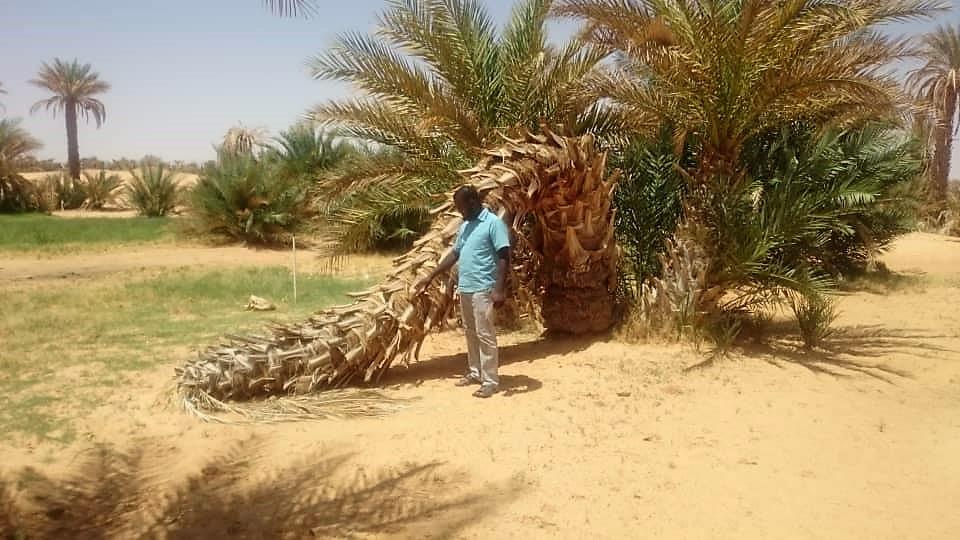Libya joins the race to eradicate Red Palm Weevil

©FAOSNE
13 November 2018, Tunis, Tunisia - The Food and Agriculture Organization of the United Nations (FAO), in collaboration with the International Center for Advanced Mediterranean Agronomic Studies (CIHEAM) and other stakeholders will collaborate with the Libyan ministry of agriculture, livestock and marine resources to the eradication of the Red Palm Weevil (RPW).
This five years’ project aims at supporting efforts/programs of countries to contain the spread and eradicate the pest. The project will also create a framework for cooperation and coordination of efforts at the regional level for supporting the integrated and sustainable management programs to control RPW; and to reduce its devastating effects on the environment and food security, and socio-economic impact on rural communities.
Mohamed Amrani, FAO Subregional Coordinator for North Africa praised the importance of this step as it incarnates what FAO keeps on saying that wars and conflicts should not stop us from pursuing our efforts in agriculture and pest control, and that agriculture is the corner stone to sustainable stability.
Abdulmonem Sadkha, the director of international cooperation Libyan ministry of agriculture, livestock and marine resources: “We are glad that FAO and the global community have responded to our plea for saving our date palms from RPW as we couldn’t do it alone. The technical expertise which will be brought by FAO and other stakeholders is far more important than any financial contribution.”
The multidisciplinary approach of the project will aim at achieving five main goals, to guarantee reaching sustainable solutions.
It will focus on governance, through supporting Policies and Regulations for sustainable management of RPW, including phytosanitary and quarantine management practices for fast eradication of RPW and rational use of pesticides.
This is coupled to rigid monitoring and activating early warning and risk assessment systems, in addition to strengthening scientific research and encouraging innovation for long-term solutions.
FAO and its partners will build the Capacity for stakeholders, farmers, while improving access to sustainable management practices for RPW using gender inclusive approaches.
And, as Libya is one of the implementing beneficiaries, it will join the network of the RPW response teams to coordinate the response to RPW outbreak, share experiences and exchange data.
Red Palm Weevil
RPW is one of the world’s major invasive pest species and is the single most destructive pest of some 40 palm species worldwide.
RPW was detected in the Gulf region during the mid-eighties. Over the last three decades, the weevil has spread rapidly through the Middle East and North Africa, affecting almost every country in the region.
In the NENA region, RPW is causing widespread damage to date palm, having both agricultural impacts on the palm production, which has negative repercussions on the livelihoods of farmers and the country’s economy as well as environmental impacts.
Palm trees are an important resource for many communities in the Middle East and North Africa. Dates have been a basic food staple for centuries, and are now an important economic crop.
FAO and Red Palm Weevil
FAO has been giving special attention to the fight against RPW in the region, namely through studying the current situation and determining suitable management practices through research and technologies for improvement.
